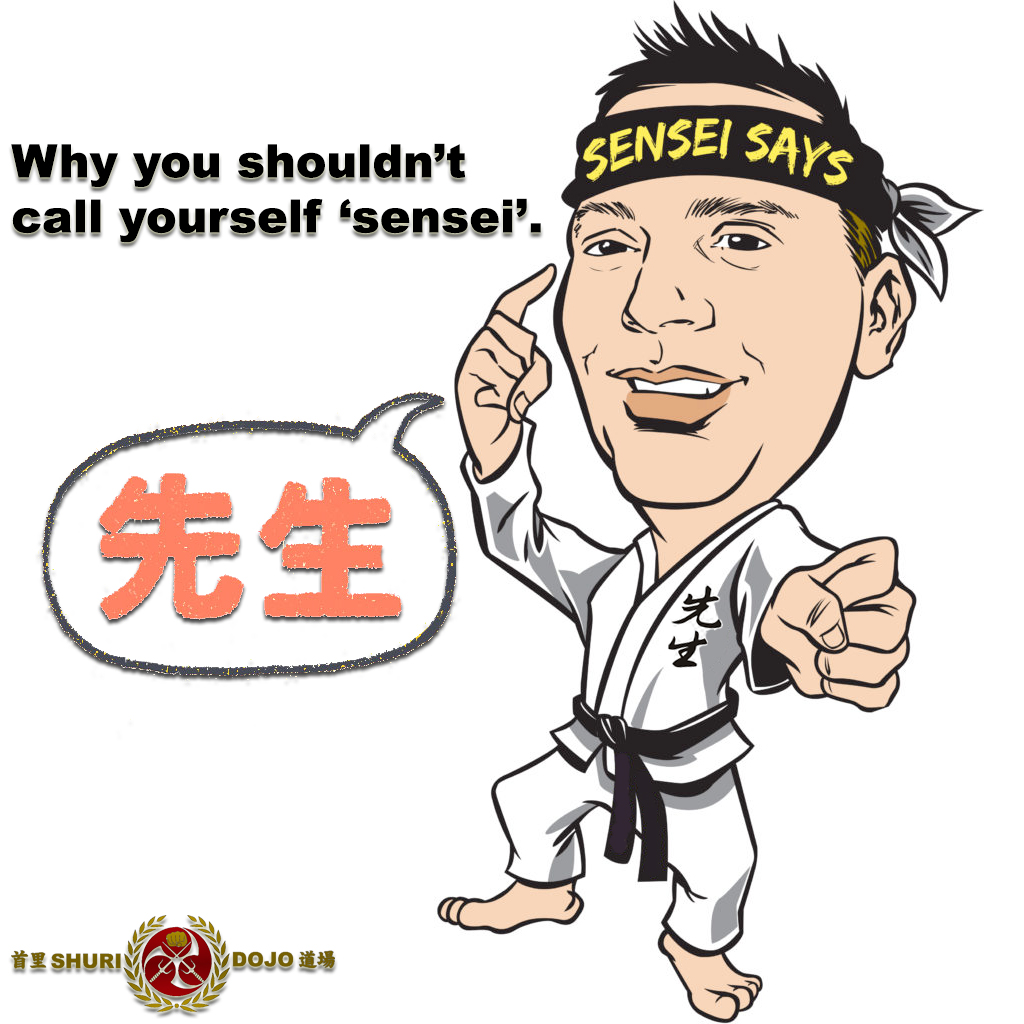
Why you shouldn’t call yourself ‘sensei’. ??
.
‘Sensei’ (先生) is a Japanese word people all over the world use, in and out of the dojo, in place of ‘teacher.’
.
But the word ‘sensei’ is much more than simply a synonym for ‘teacher’.
When trying to understand a Japanese word, it’s always a good idea to look at its kanji:
.
先 (せん) = previous
生 (せい) = born
.
‘A person born before you.’ Many dictionaries suggest this is the original meaning of sensei (先生), which makes sense when you look at the kanji. Back in the day, living longer meant (and still implies), having more experience and knowledge.
.
These days sensei (先生) doesn’t necessarily mean someone older, but it still means someone who’s experienced, skilled, and knowledgeable. Traditionally, people in Japan are taught to pay respect to elders, and it’s important to know the word sensei (先生) feels respectful.
.
I’m not sure who is certifying people as ‘sensei’, but the idea of that seems to fly in the face of what the term is supposed to represent. It’s a word used to refer to others.
.
‘Sensei’ is a term that shows honor and respect. It’s a term given by a student to their teacher. It’s not a label you give to yourself. One uses the term to show respect to others. You choose to call somebody else a ‘sensei.’
.
The point is that even if the guy teaching karate demands that you call him ‘sensei’, he might not be a sensei at all. There’s a difference between teaching how to kick and punch, being an instructor or coach and between a ‘sensei’. A huge difference!
.
So, who can you call a sensei? A person who doesn’t only teach you the techniques, a person who also teaches you the philosophy behind the martial art that you’re studying, a person who’s wise and knowledgeable, and a person who teaches by example. Having rank alone does not make you a ‘sensei’.
